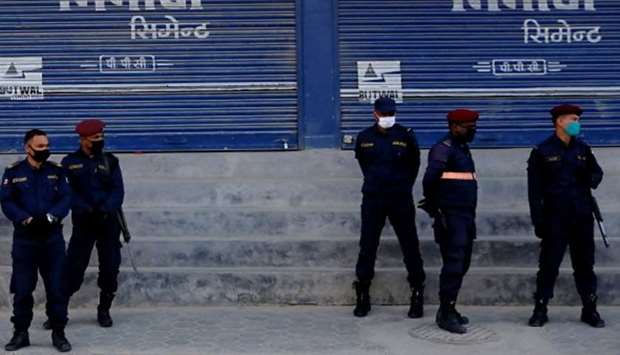Poachers in Nepal are taking advantage of slack monitoring and sparse public movement during the Covid-19 lockdown, with the country seeing a surge in killing of wildlife under the shadow of the coronavirus pandemic.
Officials say that an elephant and three crocodiles have been killed since the country went into lockdown on March 24, a period which also saw a deadly encounter between poachers and wildlife rangers.
‘We have increased patrolling following a rise in the movement of poachers; But its not surprising as we were expecting that something like this would happen,’ Bishnu Prasad Shrestha, a spokesperson for Nepal's Department of National Park and Wildlife Conservation (DNPWC), told dpa on Saturday.
DNPWC officials said that three critically endangered Gharial crocodiles were killed around Chitwan National Park, while the elephant was found electrocuted in the buffer zone of the Bardiya National Park in western Nepal.
Authorities have buried the adult elephant after taking out its tusks and nails.
National parks across the country have been reporting incidents of encounters between wildlife rangers and poachers.
On March 27, a poacher was shot dead, while a wildlife ranger belonging to the Nepal Army was seriously injured in crossfire that occurred in Parsa National Park in Nepal's central region bordering India.
Experts say multiple factors - including the impact of Covid-19 on the livelihoods of poor people, less patrolling, little movement of people and entry of animals into human settlements - are contributing to the increase in poaching activities.
‘This is also a time when villages are witnessing a rise in people returning from big cities in the wake of the lockdown,’ Ananath Baral, chief ranger of the Bardiya National Park, told dpa.
‘Naturally, people with a criminal mindset are also returning.
‘They are trying to take advantage of the lockdown,’ he said, adding that some incidents are also resulting from human-wildlife conflict.
Wildlife activists in Nepal have forecast a rise in poaching activities as the lockdown continues to affect the livelihoods of poor people, including daily wage labourers.

